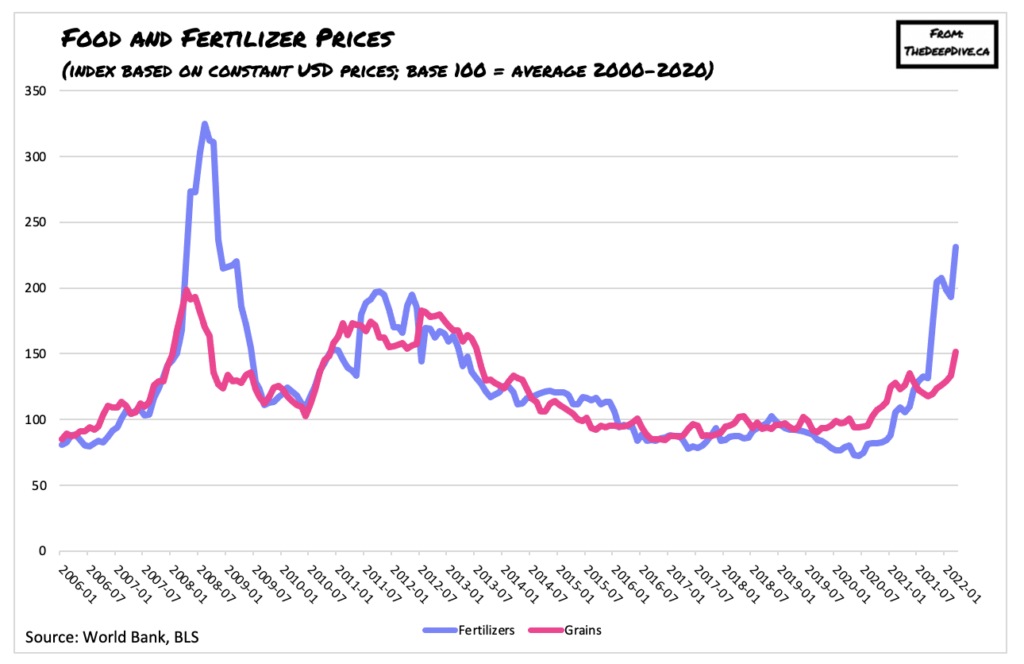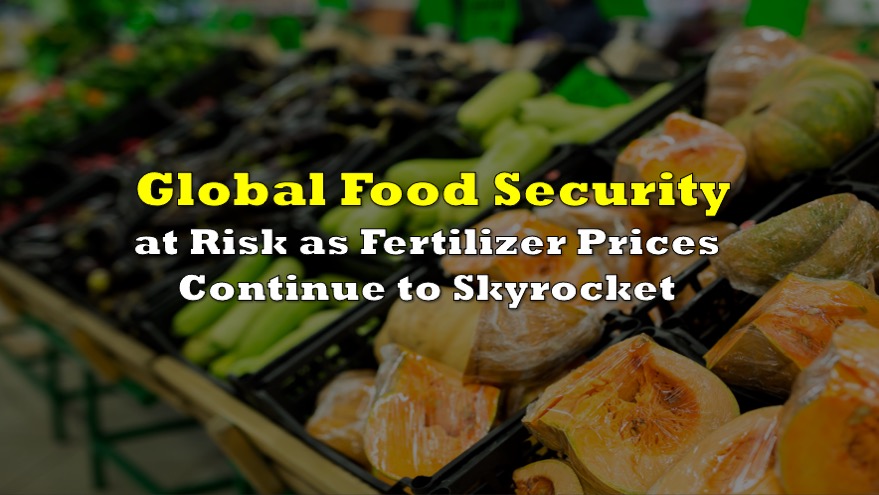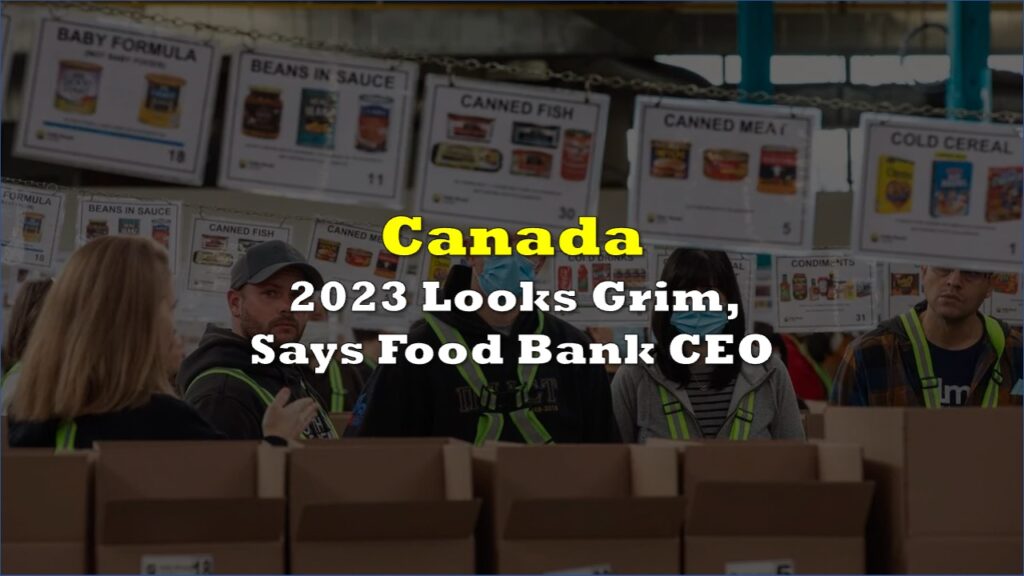The compounding economic crises over the past several years have exasperated vulnerabilities across a number of important commodities, including energy, lumber, and precious metals. However, this time joining the list is fertilizer, which can have grave and immediate impacts on the world’s food supply.
The price of fertilizers— namely those made from primary macronutrients including nitrogen (N), phosphorus (P), and potassium (K)— have risen substantially over the past two years, and have only soared even higher following the military conflict in Ukraine. Separately, food inflation has persistently reached record-breaking levels over the past 12 months, putting food security at peril for developing and middle-income countries. But, the immediate combination of surging food prices and high fertilizer costs are rapidly fuelling concerns over future harvest yields, and the inevitable risk of long-term food inflation and food shortages.

The global supply of fertilizer began to face unprecedented challenges, as the sharp jump in natural gas prices across Europe and Asia forced major fertilizer maker Yara to curtail its European production of ammonia and urea by 55%. At the same time, rising coal prices in Asia forced the country’s ammonia producers to substantially reduce output, further driving fertilizer prices higher.
Compounding the problem into a further crisis has been the Ukraine conflict, which disrupted trade routes from Russia and Belarus— something that is especially problematic given that the two countries produce 41% of the world’s traded MOP (K fertilizer). With the West now embarking on a comprehensive ban on energy imports from Russia in response to Moscow’s military operation, European and US fertilizer producers will likely face further headaches in terms of natural gas supply, cementing fertilizer prices higher.
If fertilizer importers are unable to secure alternative sources other than Russia or Belarus, they will likely undergo an immediate supply shortfall in an already tight global commodity market. The rerouting of trade routes and added transportation costs will drive fertilizer prices even more upwards, adversely affecting even those countries not directly reliant on imports from Russia and Belarus.
Information for this briefing was found via the sources mentioned. The author has no securities or affiliations related to this organization. Not a recommendation to buy or sell. Always do additional research and consult a professional before purchasing a security. The author holds no licenses.









